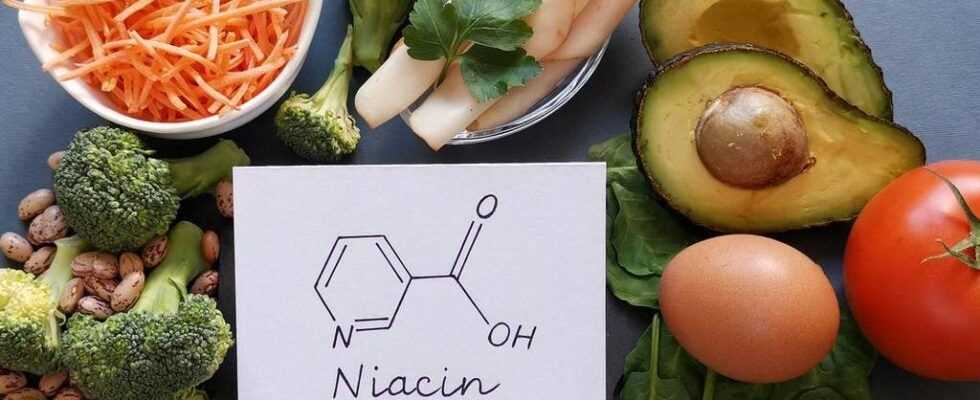Almond oil, magnesium or even hyaluronic acid – there are many miracle products for the skin. Some work better sometimes, others less well. The name niacinamide has been on everyone's lips for some time. But what can the so-called power vitamin really do?
Vitamin B3 is essential
Niacinamide, or niacin for short, is a form of vitamin B3 and plays an important role in many metabolic processes throughout the body. For example, it supports the strengthening of the skin barrier, but also the brain, pancreas and joints. Unfortunately, B3 is a vitamin that the body itself can only produce in small and insufficient quantities. That is why we have to eat it in the form of cereals, poultry, fish and cashew nuts.
Especially for those who suffer from skin problems, niacin could be the solution. Numerous studies have shown that the power vitamin has a positive effect on the skin's barrier function. It can alleviate the symptoms of dry skin, but also counteract reddening of the face.
It's the dosage that matters
At the same time, it has an anti-inflammatory and antibacterial effect. Pimples, large pores, hyperpigmentation could be a thing of the past. But be careful, too high a concentration of vitamin B3 can lead to a temporary reddening of the skin, since the vitamin temporarily expands the small blood vessels in the skin.
These foods contain niacin
Of course, there are countless serums and cosmetic products that contain niacin. If you want to do without it, you can stick to certain foods. Animal products such as meat, fish and eggs are particularly rich in vitamin B3. Plants, on the other hand, are rather low in B3. So if you eat a purely plant-based diet, you will have to resort to food supplements. Coffee junkies can look forward to this: bean coffee is an excellent vegetable vitamin B3 supplier.
